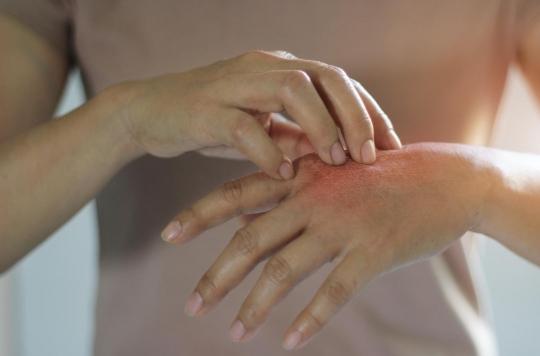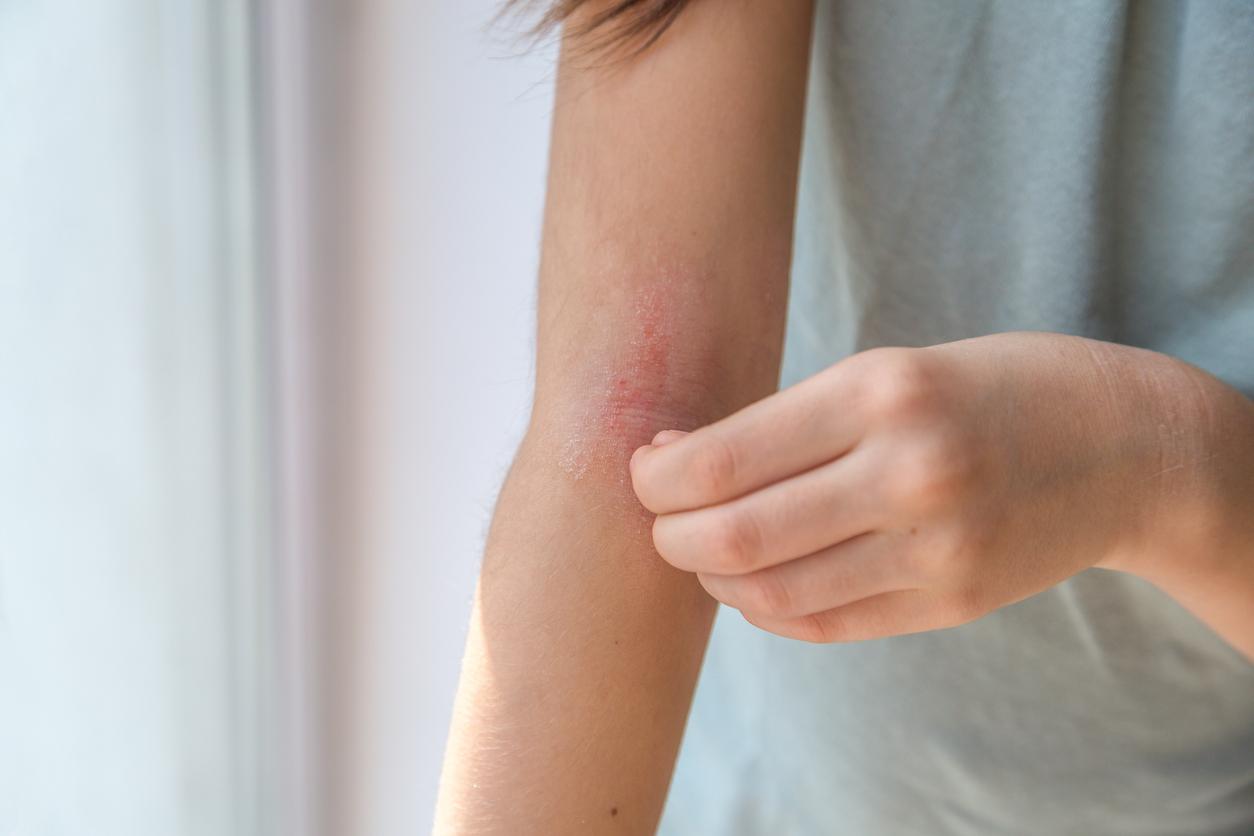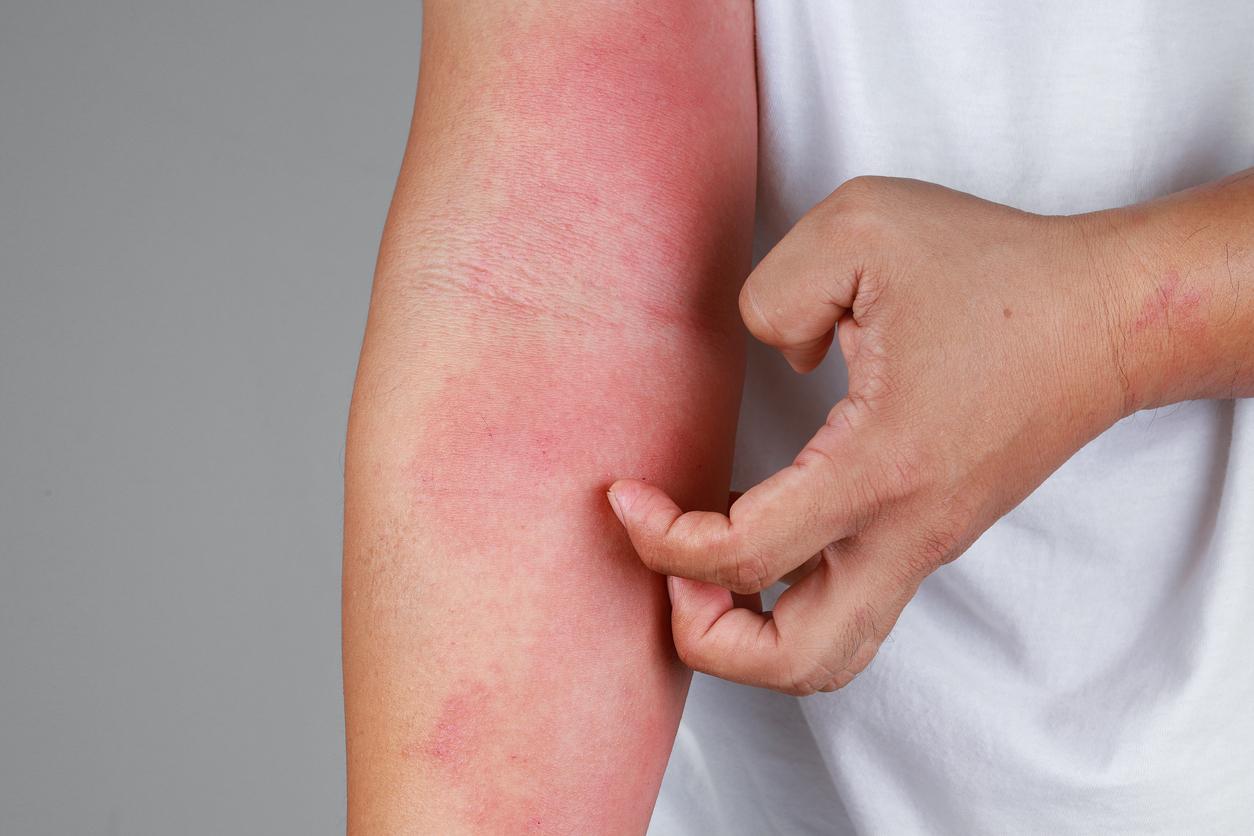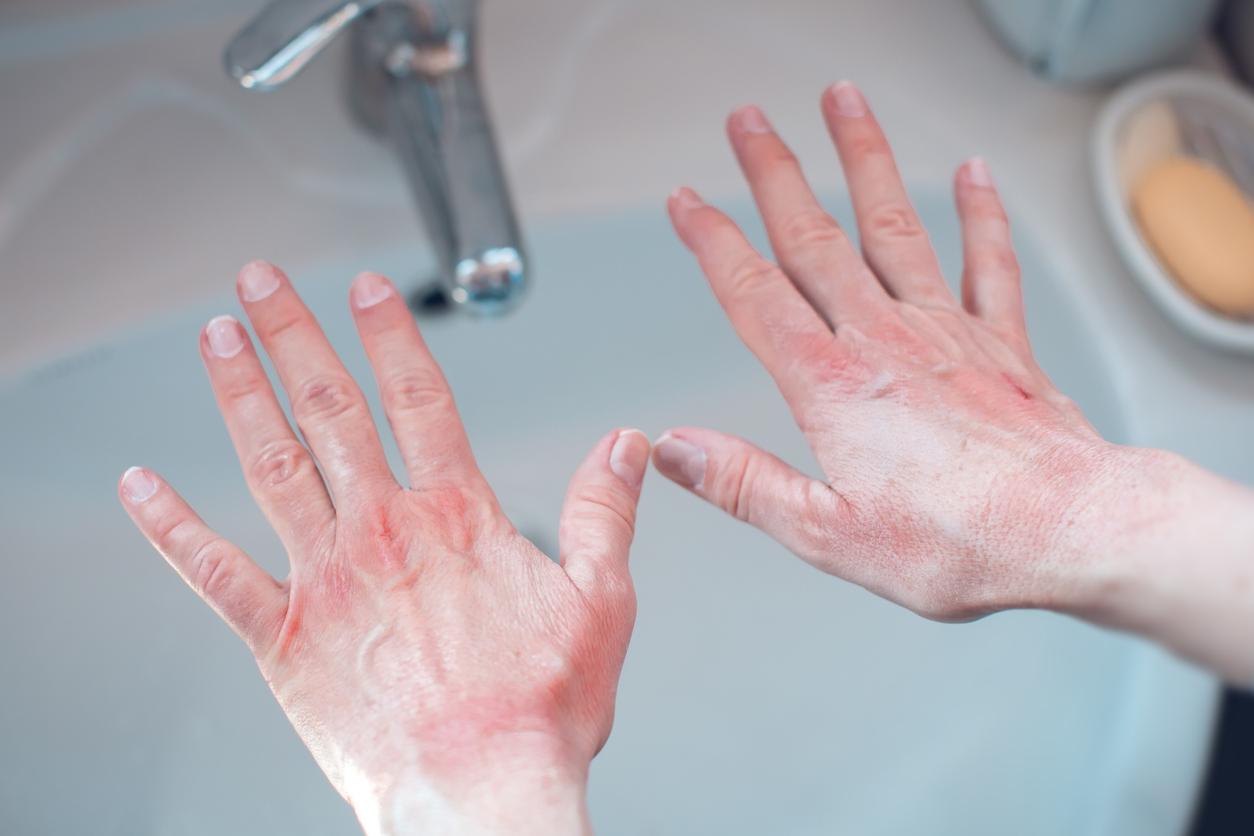Researchers have discovered how genetic variations cause eczema. This discovery could lead to genetic tests that identify infants at risk of contracting the disease.

- Two relatively common variations of a gene called KIF3A are responsible for an impaired skin barrier that allows increased water loss from the skin, promoting the development of eczema.
- Decreased production of the KIF3A protein, which promotes dysfunction of the barrier that normally keeps skin well hydrated, increases a person’s likelihood of developing eczema.
The origin of eczema may well have been found. US researchers from the National Institutes of Health (NIH) have described how two relatively common variations of a gene called KIF3A are responsible for an impaired skin barrier that allows increased water loss from the skin, promoting the development of ‘eczema. This discovery could lead to genetic testing allowing parents and doctors to take steps to potentially protect vulnerable infants from developing eczema and other allergic diseases. The results of the study were published on August 14 in the journal NatureCommunications.
The KIF3A protein, the key
The KIF3A gene encodes a protein involved in generating signals from outside to inside a cell. Previously, scientists identified an association between two genetic variations of KIF3A and asthma in children who also have eczema. In the new study, the researchers found that these variations, or single nucleotide polymorphisms (SNPs), changed parts of the KIF3A gene into a form that can regulate, through a process called methylation, the rate at which a gene produces proteins. The researchers confirmed that skin and nasal mucosa cells from people with KIF3A SNP variants have more methylation. They also demonstrated that these people have higher levels of water loss from the skin, promoting the development of eczema.
To determine whether lower levels of KIF3A cause eczema, the scientists studied mice that lacked KIF3A in skin cells. They found that these mice also have increased water loss from the skin due to a dysfunctional skin barrier and are more likely to develop features of atopic dermatitis. The researchers concluded that the presence of one or both SNPs in human KIF3A leads to a decrease in the production of the KIF3A protein, promoting dysfunction of the barrier that normally keeps the skin well hydrated, increasing the likelihood that a person develops eczema.
Preventing Eczema in Infants
Infants could take advantage of this discovery to be screened for the risks of eczema they present. Therapies specifically targeting water loss from the skin, such as intensive topical hydration regimens, could be evaluated for their ability to prevent atopic dermatitis in children with PNS. Preventing eczema in early childhood could in turn prevent a cascade of additional allergic diseases later in life, such as asthma, food allergies and allergic rhinitis.
Atopic dermatitis, or eczema, is an inflammatory skin condition that affects up to 20% of children. This chronic disease is characterized by dry, thickened and intensely itchy skin, especially in the skin folds. People with eczema are more susceptible to bacterial, viral, and fungal skin infections and frequently develop additional allergic conditions such as asthma.

.















